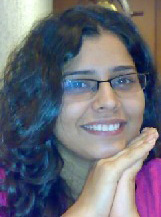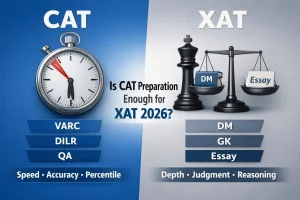The auctioneer scans the room and suppresses a grin. With a straight face he states, “Five hundred thousand. Three!” He bangs the hammer on the table and finally allows himself a smile. “The painting is sold to that gentleman there for five hundred thousand rupees.”
Behind the stage, an attendant offers him a juice but Naader Kalaam shakes his head. He stumbles backwards and collapses into a chair. The room is cold but perspiration trickles down his jaw. Naader shuts his eyes and blanks out the world.
***
The imposing brown of The Sir Jamshetji Jeejeebhoy School of Arts enveloped him. It soared in all directions and for the first time since he stepped into the City of Dreams, Naader did not mind the periphery around his vision. He had strapped a black bag over his shoulders and those few belongings that did not fit in this were carried in a plastic bag in his right hand. He wished he could sit in the lawns for a while, take in the softness below his feet and the solid rock structure all around, but he knew he couldn’t take such luxuries now. Classes began tomorrow morning and he had another eight hours to find himself a job.
The only saving grace was that Naader couldn’t care less about the kind of job he did – aware only that he had to pay his living expenses. So he was not above waiting at coffee shops, dishing out burgers or handling cash tills at video game parlours. He learnt to smile at customers and bosses alike, but once out of his uniform, the plastic expressions were stripped away and a natural frown settled over him. As he brooded over canvasses, his eyebrows would knit and his face become pale. His eyes were then reduced to little darts, hidden behind heavy eyelids and bushy eyebrows.
Few of his fellow students knew him well, though most professors boasted that they did. Despite a non-discrepant appearance, Naader found himself some silent admirers who admitted to themselves that he would not vanish without a splash. At the face of it though, such a possibility was remote. The single room that he had rented in a chawl of Bhindi Bazaar consisted of a platform with few vessels, a sofa-cum-bed, a wooden working table and a single easy chair. A patch of the roof was poorly built and threatened to leak at the first sign of rain. The toilet was a common one at the end of every 5 houses in a row.
And then of course, there was ‘his space’. Physically, it took up the only corner of the room not splashed with paan stains – a five by four rectangle fitted with an easel and a palate. But as soon as Naader entered, it threw back the walls and brought him face to face with monsoon beggars, with aging princesses, with wilting flowers and boys bursting into manhood. Sometimes he rode over an endless angry sea, other times over caressing, conniving sand dunes, sometimes he peeped into the eyes of a street vendor and other times stared at baby through a raindrop. Often however, he didn’t know what he would see until he was halfway through the journey. Veils over veils surrounded him and he painted them away one at a time. A bold stroke of yellow. A thin deep blue. A bolt of white. A patch of orange. Finally, after hours of labour, the picture would emerge, like a child pushing out of his mother, one finger at a time, one inch after the next, enticing Naader in the world of creation until the milkman rang the doorbell.
The elixir of his nights however, grew thin during the days. This was the time of fees and payments, bills and debts, which piled up higher than his canvasses. His odd jobs covered his living expenses and the cost of his art material but they barely made a dent in his annual fee structure. Naader started working two shifts, roamed art galleries in search of odd assignments, inquired at a photo studio if they wanted a portrait artist – and yet the crunch remained.
Eventually, when every door had been opened and shut, a chance showed itself. A gallery owner who had some admiration for Naader’s samples and his earnest eyes offered to display some of his paintings at an upcoming auction. He would need at least twenty of them though, in order to make an impression of the debutante artist in the minds of his patrons. “If you display just a couple of paintings, people will just swish by in a second. You have to etch your impression on their memories,” he explained.
Naader nodded enthusiastically in agreement until he realised the date of the auction. It was less than two weeks away. He gulped but agreed to have twenty paintings ready and walked off. There was no time to lose. Once home, he checked his portfolio. One, two, three… sixteen. And then there was that one on the easel, almost complete. He took all the finished paintings and went to get them mounted and framed. That taken care of, he started work on his unfinished painting with renewed hope. Slowly and firmly he made the outline of the wind. The words of his teacher echoed as he worked – “the final stroke defines the painting. The shadow becomes darker, outlines bolder and parts are emphasised which were once subdued.” Finishing strokes were the hardest. The base could be completed in a day but one was lucky if the finishing took less than three days.
Ten days later, Naader and his home wore the look of just having experienced a mighty scuffle – both sporting an equally dishevelled and messy guise. Just one more to go. Ignoring the mirror and avoiding his landlady, Naader removed a fresh canvas and sighed. He waited. No inspiration came. Not even a drop, leave alone a trickle. He watched the whiteness for over an hour, toying with a couple of ideas and discarding them both. They were too weak and reeked of his desperate situation. Another hour passed by and still no sign of a concept.
Nervous, Naader told himself that the painting would paint itself – he just had to get her started. He picked up the brush and began. Solid colours first, then some glossy peach and olive green. Layer upon layer of shades of blue. He worked fast – he knew that his hands needed to move intuitively, without thinking. Three hours later, he stepped back and examined the canvas. It looked like a rotting fruit bowl, like a surgery gone haywire. Like colours had decided to rebel against themselves. Naader’s face contorted but he wouldn’t let the tear fall. He threw his brush on the floor, walked out of the room and slammed the door behind him.
He wearily stepped down the creaky steps of the building to reach his trusted Irani café. The food here matched his palate and the prices his wallet. His only chance was just one canvas away and his muse had decided to desert him. At the time he needed divine help the most, he had been forsaken. A large sob swelled within him but once again, he pushed it back. As if on cue, the skies opened up. A curtain of raindrops covered the landscape. Men and women gathered under the shelter of the cafe while urchins pranced in virgin puddles. A strong cold wind whooshed by and took away with it the cumulative heat pressing upon the city. A pretty girl in the opposite building put out her hands to catch raindrops.
The hot tea soothed him considerably and Naader was on his second cup when he remembered the leaking roof. Leaving the tea half drunk and throwing a ten rupee note on the table, Naader rushed up. The leak was just above his painting area. He felt a knot build up as he approached his room. Surely, the canvasses would be ruined now. He burst into the room and stopped. A steady drip fell from the roof. All his ready canvasses remained untouched – the drops only caressed the painting on the easel. He gasped. The mishmash of paint was completely transformed. On the canvas was a surreal monsoon, the kind they probably saw in paradise. Water stretched in layers, soaking, drowning even the most casual onlookers. Just a glimpse and anyone was sure to be mesmerised. Naader inched closer, a strange force pulling him towards the painting, and he knew then, that his muse had not deserted him after all. No, she had instead called on a higher force, the ultimate creator.
***
Naader clasps the cheque in his hands and counts the zeroes. The buyer, the wife of an influential businessman, is asking him questions whose answers he wishes he knew. He gives slow, textbook replies and hopes she’s not put off. She seems interested. A young woman walks up to him and asks for his autograph. He scrawls his signature awkwardly. The buyer stares at his signature and then at the painting. She frowns. “But… but Naader, your signature on the painting is different! You haven’t written your name.” She squints and observes the word closely. In tiny lettering, the word ‘Allah’ is merged into the water landscape.
“I couldn’t put my name there, ma’am,” Naader smiles. “It would be plagiarism. The hand may have been mine but the strokes were His.”







